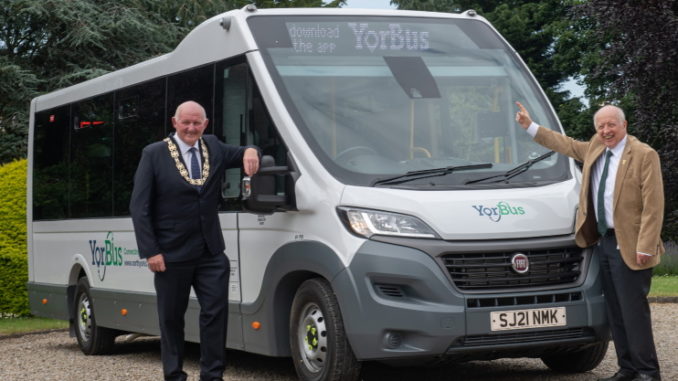
Campaigners battling for improved rural bus services have raised a red flag over a local authority’s plan to roll out demand responsive bus services, saying the system it has hailed as a success is flawed and that it could “simply be used to justify removal of conventional services”.
The concerns over North Yorkshire County Council’s Yorbus demand responsive transport model have been highlighted following the authority unveiling its Bus Service Improvement Plan (BSIP) as part of the government’s £3 billion national Bus Back Better strategy.
The authority has stated its vision aims to “address the needs of passengers in areas which struggle to support commercial bus services”.
A report on the BSIP to the authority’s executive members states how the council sought the views of more than 100 organisations and individuals on their priorities and desired outcomes in developing the document.
The report adds: “Following the successful pilot of the council’s digital demand responsive travel service, YorBus will be rolled out across other areas in the county.”
The BSIP, which must be published this month, states how the authority’s Rural Commission inquiry was supportive of the YorBus demand responsive bus service it has launched as a trial in the Bedale, Masham and Ripon area, enabling users to choose when and where they want to travel via an app.
However, it has been claimed members of the Hambleton and Richmondshire Bus Users Group warned the council’s transport bosses in engagement meetings the Yorbus system was not suitable for the rural areas.
Transport campaigners told council bosses Yorbus made no provision for advance bookings and restricted passenger pick-ups and set-downs to existing conventional bus stops, even where no other services exist.
Barry Connor, a former transport firm boss who has spent years campaigning for an innovative public transport system in Hambleton district villages which have few if any bus services, said: “Demand responsive transport has an important role, but it needs to be flexible and convenient for users.”
He said features such as advance booking and virtual bus stops would be essential if a service is designed to attract people who are not on existing bus routes or people with disabilities who cannot reach existing bus stops.
Mr Connor said: “Unfortunately in addition to refusing to take on board the constructive criticism of user groups, the council has failed to publish any factual evidence to justify their claim that the service is successful, instead concentrating on the number of apps downloaded as a measure of success, rather than the number of trips, which are not clearly provided.
“There has to be concern that the Yorbus model could simply be used to justify removal of conventional services.”
The authority’s executive member for access, Councillor Don Mackenzie said so far there had been “overwhelming public satisfaction” towards the Yorbus service.
He said: “We are not saying this is the answer to all our aspirations for bus services.
“It is simply a pilot as we investigate how we can connect up rural areas better by means of a bus service and therefore people don’t need to get in their cars. It is a means of ensuring that we are not transporting fresh air around.
“It is a pilot scheme and we are taking constructive criticism from all users, and in particular from the passengers themselves.
“For the first two months of the pilot it has been rated by passengers as 4.8 or 4.9 stars out of five.”


Be the first to comment